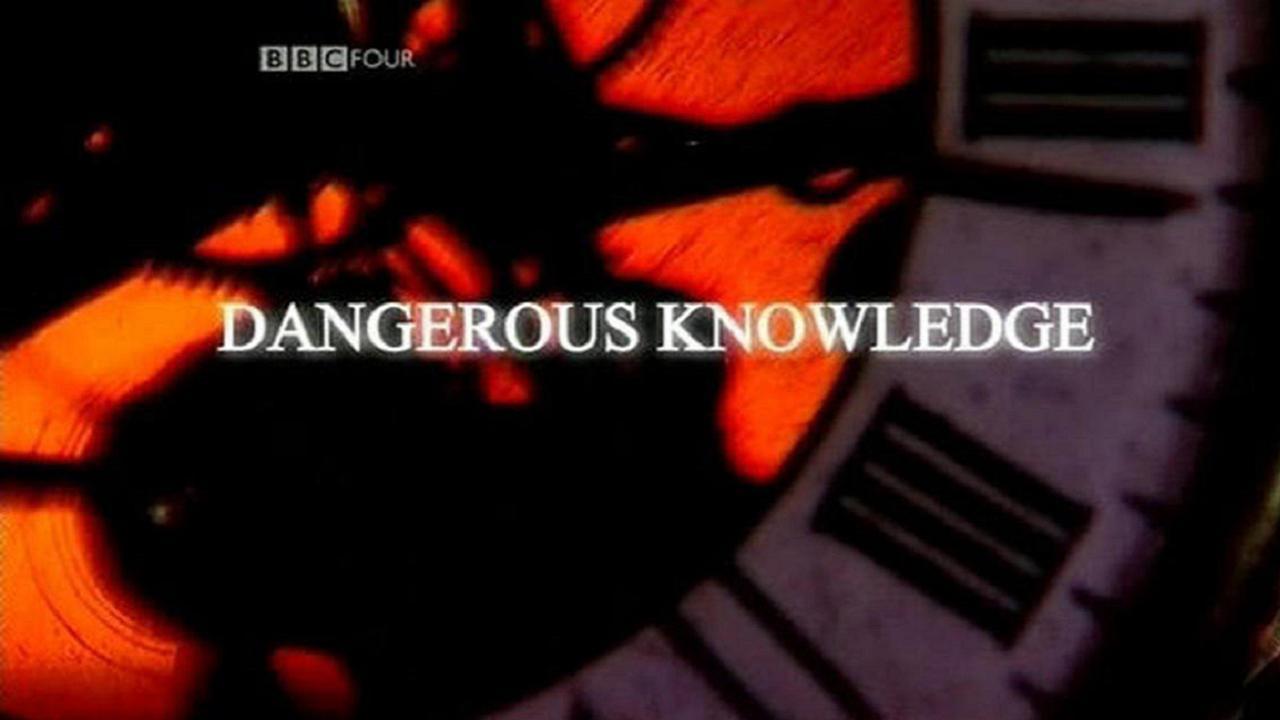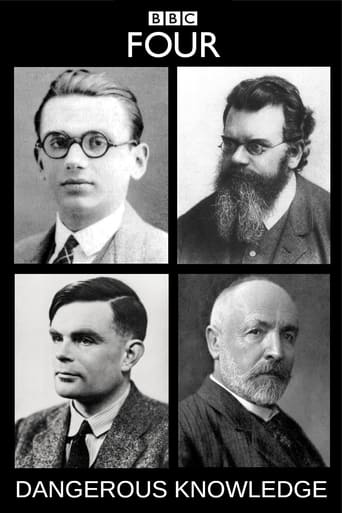Cathardincu
Surprisingly incoherent and boring
CrawlerChunky
In truth, there is barely enough story here to make a film.
Helloturia
I have absolutely never seen anything like this movie before. You have to see this movie.
Murphy Howard
I enjoyed watching this film and would recommend other to give it a try , (as I am) but this movie, although enjoyable to watch due to the better than average acting fails to add anything new to its storyline that is all too familiar to these types of movies.
antimatter33
I am a physicist by training with a minor in mathematics. I can attest that everything in this documentary is correct history - all four of these men were on the intellectual edge, and the work of each had a profound influence on all intellectual thought in the modern era, practical (Boltzmann, Turing) and theoretical (Cantor, Goedel). The presentation is engaging, the presenters, thoughtful and interested and direct - I sure wish I could determine who they are! The title might be off-putting in the sense that knowledge in itself is neutral - but new knowledge never exists in isolation, and ideas can indeed be dangerous - and as we've seen in the XXth century, resistance to them even more so. The rise of Nazi Germany was nothing less than an effort to impose an artificial new order in place of the old one, which had crumbled. That these new ideas in mathematics were being debated at the same time is no coincidence. This program does an excellent job of linking the most abstract realms of intellectual life with everyday reality. It must also be noted that these new mathematical ideas are in themselves quite apart from the two great new ideas in physics that emerged at the same time, the theory of relativity and the new world of quantum mechanics, and have deeply influenced the interpretation of these ideas subsequently. As the presenters make clear, we are still struggling with the consequences of all these ideas. The best thing to recommend this program is that it shows how viscerally *exiting* is the life of the mind - and how deeply some people pursue it, even at the expense of their own mental health.-drl
lvmnkysrvy
I'm not a mathematician so can't talk to the completeness or accuracy of the representation on that in this documentary. What I can say is that it introduces concepts in a very digestible way that were otherwise unknown to me (and I have studied physics so am not ignorant of mathematics).Furthermore, the previous reviewer (Carey Butler) seems to have missed the boat on the concept of dangerous knowledge... the documentary isn't saying that the knowledge is dangerous, but rather that the minds or persons that can develop it are on the edge of reality ...the line between brilliance and madness, particularly when it is tuned to a concept so abstract and unfathomable as infinity (dare I say it) infinitely narrow.
Carey Butler
A very melodramatic and incomplete history of the modern view of infinity, certainty and logic. I sure hope people don't take this as seriously as those who created it have done!The work of Cantor, Boltzmann, Russell, Whitehead, Gödel and Turing were truly a great and wondrous things, but this 'rendition' of their work sows discord and disarray where none must be.This video has almost more to do with fear and victimization than the achievements it proposes to make known or explain. It mixes and blurs the question of certainty with the feeling of being safe; thereby creating a false dichotomy.Even some of the characterizations and conclusions are lop-sided and polarized.Knowledge is not dangerous! Unless you have some reason to hide it or hide from it... which is perhaps an appropriate mode and epitaph of our 'modern' time.There are certainties to knowledge... you need only change your perspective.

